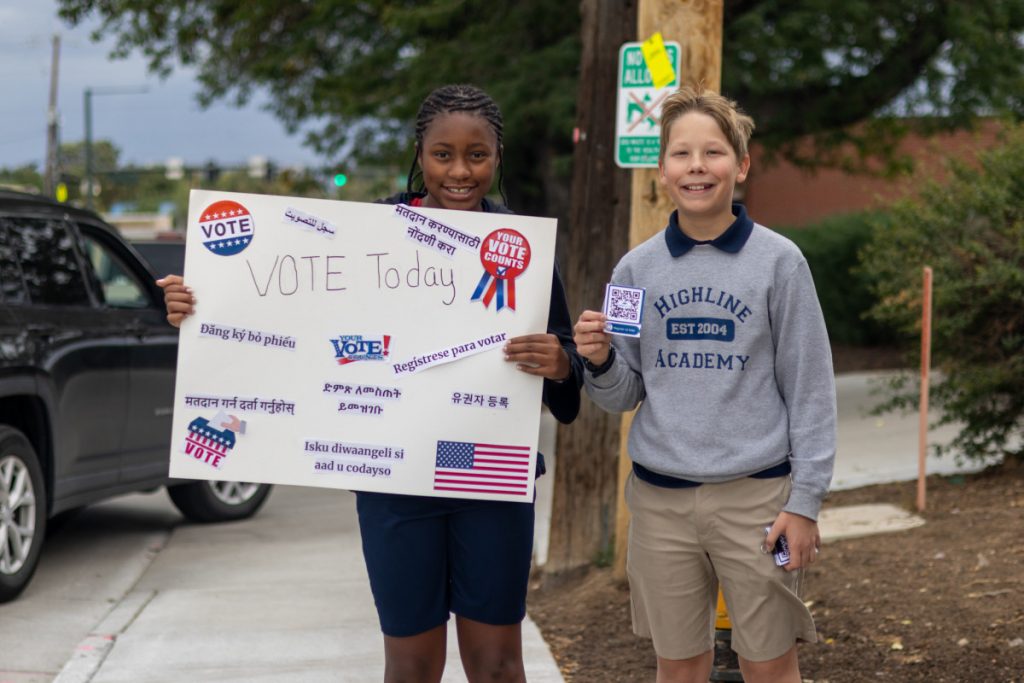As you might recall, last year a faction of the Denver Public Schools board decided to pick a fight with its 50-plus innovation schools, which are district-run schools that, under state law, have some charter-school-like freedoms built into their agreements with their district.
The DPS board initially voted to strip innovation schools of most of their autonomies because they believed they conflicted with the contract between the district and the Denver Classroom Teachers Association.
After a great deal of back and forth, the board restored some of the flexibilities, specifically around school calendars. Now, with innovation plan renewals coming up for votes over the next few months, we’ll be able to see in real time just how badly the board has, with its meddling, damaged the concept of innovation.
The DCTA can’t kill charter schools, which no doubt would be the ultimate dream. Crippling innovation schools would be the next best thing.
Will schools scale back their plans to win approval from the DCTA-friendly school board? Will the board and district staff frown upon plans that try to retain some flexibility over personnel?
Here are three questions I will be asking as the innovation renewal process unfolds.
First, how much flexibility will innovation schools retain around calendars – when the school year and school day begin and end? Up until now, innovation schools have enjoyed wide latitude in setting their calendars to best meet the needs of their students, as determined by each school’s teaching staff and administration.
Now, with a district-wide “Healthy Start Times” initiative that will have elementary schools starting earlier and middle schools and high schools later than in years past, transportation issues dictate that all schools have to standardize their start times by grade level served.
And as I wrote a couple of weeks ago, there are ongoing attempts by at least one school board member to exert tighter control over when the school year starts and ends. While this particular effort seems likely to fail, expect more attempts to limit innovation school calendars.
Second, to what extent will the Denver Classroom Teachers Association be a true partner with the district and innovation schools in supporting innovation plans that are in compliance with new board mandates?
There are likely to be two broad categories of innovation plans sent to DPS staff for review. The first will be plans fully in compliance (to the extent that can be ascertained) with the board’s new “executive limitations” detailing what kinds of waivers to the union contract and district regulations are permissible. The types of waivers allowed have been narrowed significantly by the board.
The other type of plans submitted will be those that push the envelope and try to preserve as much of an individual school’s autonomy as possible, even if that means bumping up against some executive limitations.
You would expect the district to push back against this second type of plan. One example is the issue of ‘direct placement’ of teachers into schools, more commonly known as forced placements. Innovation schools until now have been able to waive the nonsensical and destructive 1990 state Teacher Employment, Compensation, and Dismissal Act clause that teachers, even those no school wants, are guaranteed a job.
If the board reinstitutes forced placement for innovation schools, a school could end up with a teacher who neither wants to be in the school nor is wanted by the school’s leadership.
Early signs are that innovation schools will have to accept forced placements going forward. Any plan that tries to opt out could well be recommended for rejection by district leadership.This obviously could be damaging to a school where the staff is supportive of innovations and is pulling in the same direction.
Equally or more troubling is the possibility that DCTA could lobby against even the first category of those innovation plans, those that are fully compliant with the school board’s executive limitations, arguing that by their very nature innovation schools violate the contract. Indeed, this, in broad terms, was what DPS staff found last year during a detailed review of the union contract.
Any plan that asks for waivers that come into conflict with the DCTA contract might have to be approved by the DCTA board. Such approvals would seem highly unlikely under current union leadership. This would hold true even in those schools where the teaching staff, including union members, is highly supportive of the plan.
Finally, my third question is what practical impact will the new restrictions have on the day-to-day operation of innovation schools? Will all that’s left of innovation be the right for schools to waive out of DPS professional development?
At what point do innovation leaders throw up their hands and say ‘enough?’ Why put all the effort into customizing their programs to their student bodies only to be slapped down by the board?
If the school board is more interested in ensuring that innovation schools abide by the DCTA agreement than in student outcomes produced by schools with even some limited freedom to chart their own course, that should tell you all you need to know about the board’s priorities.
This will all come into clear focus between now and the end of the school year, as the board votes on renewals for dozens of innovation schools.
Please, pay close attention.




